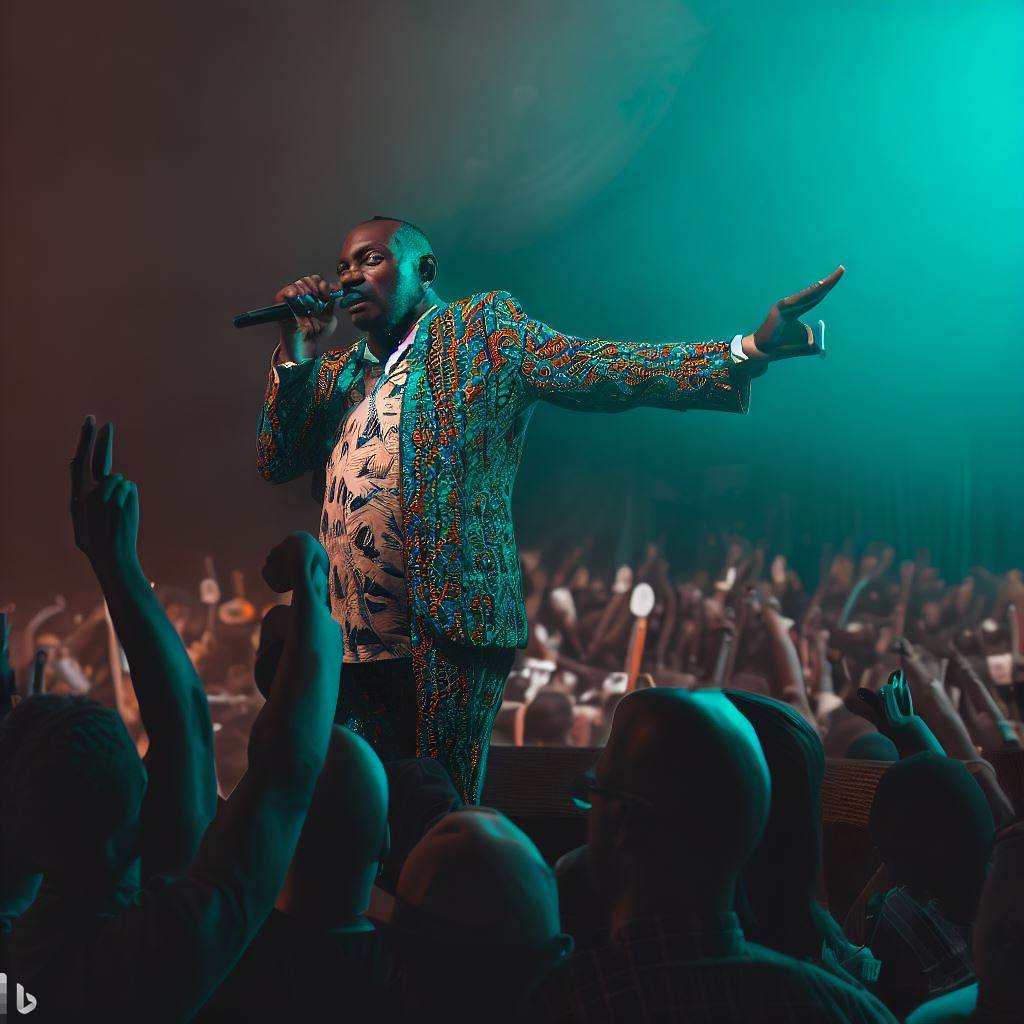Introduction
A successful concert requires proper planning. This guide is specifically tailored for Nigerian promoters. Proper planning is essential for a successful concert, ensuring its importance and benefits.
Introduction to Concert Planning:
- Concert planning is a complex task requiring meticulous attention to detail.
- It encompasses venue selection, artist booking, marketing, logistics, and more.
- A well-executed plan can turn an event into an unforgettable experience.
Tailored Guide for Nigerian Promoters
- This guide is crafted exclusively for concert promoters in Nigeria.
- It takes into account the unique challenges and opportunities of the Nigerian music industry.
- Our aim is to empower you with insights and strategies for success.
The Importance and Benefits of Proper Planning:
- Smooth Operations: Effective planning ensures seamless execution of every concert aspect.
- Cost Control: Detailed plans help manage budgets efficiently, reducing financial risks.
- Enhanced Marketing: A well-planned concert allows for strategic marketing campaigns.
- Artist Satisfaction: Adequate preparation leads to satisfied performers and exceptional shows.
- Audience Experience: Proper planning creates memorable experiences for attendees.
- Reputation Building: Successful concerts bolster your reputation in the industry.
- Risk Mitigation: Preparing for contingencies minimizes potential disruptions.
- Long-Term Success: Well-planned concerts pave the way for future opportunities.
- Industry Recognition: Consistent success establishes you as a respected promoter.
- Contribution to the Music Scene: Your efforts contribute to Nigeria’s vibrant music culture.
In this guide, we’ll delve deep into the intricacies of concert planning, equipping Nigerian promoters with the knowledge and tools to orchestrate remarkable events.
Setting Objectives
The purpose and objectives for holding a concert
- Clearly establish the reasons for organizing a concert in Nigeria.
- Determine the specific goals and outcomes you want to achieve through the event.
- Identify the target audience and their expectations to align your objectives accordingly.
The importance of clarifying goals and expectations
- Clear goals help in planning, promoting, and executing a successful concert.
- Understanding expectations ensures satisfaction for both promoters and attendees.
- Aligning goals and expectations minimizes misunderstandings and potential conflicts.
Examples of common concert objectives for Nigerian promoters
- Promote local talent and showcase Nigerian music to a larger audience.
- Increase brand awareness and enhance the reputation of a record label or artist.
- Generate revenue through ticket sales, sponsorships, merchandise, and other sources.
- Gather feedback and build a loyal fan base for future concerts and events.
- Create a sense of community and cultural pride by celebrating Nigerian music and artists.
- Collaborate with international artists to foster cultural exchange and broaden artistic horizons.
- Raise funds for charity organizations and give back to the local community.
- Collaborate with local businesses and tourism boards to boost the music and entertainment industry.
- Provide a platform for emerging artists to gain exposure and connect with industry professionals.
- Create a memorable and engaging experience for attendees through unique performances and production.
By setting clear objectives, Nigerian promoters can effectively plan and execute successful concerts. Defining the purpose helps align all efforts towards a common goal.
Whether it’s promoting local talent, generating revenue, or fostering cultural exchange, understanding objectives is crucial.
Clear communication of goals and expectations ensures a harmonious experience for both promoters and attendees, minimizing any potential conflicts or disappointments.
When setting objectives for a concert, Nigerian promoters should consider various factors such as the target audience, local market trends, and the desired impact.
By doing so, they can tailor their events to meet specific goals and create a meaningful experience for everyone involved.
Taking into account the examples mentioned above, Nigerian promoters can choose the objectives that align with their vision and resources.
Whether it’s showcasing talent, building a brand, or supporting a cause, establishing clear objectives sets the foundation for a successful concert.
Budgeting and Financing
The significance of creating a detailed budget for the concert
- It ensures financial transparency and accountability of the concert.
- Allows for proper allocation of funds to different aspects of the event.
- Helps in making informed decisions regarding spending and resource allocation.
- Acts as a financial roadmap for the promoters to stay on track.
Potential funding sources, such as sponsors and ticket sales
- Sponsors play a crucial role in providing financial support and resources for the concert.
- They can contribute towards venue costs, artist fees, marketing, and other expenses.
- Ticket sales serve as a significant revenue stream for the concert promoters.
- Effective marketing and promotion strategies can help drive ticket sales.
- Collaborating with local businesses for sponsorships can further boost the budget.
Tips on effective financial management and cost control
- Prioritize expenses based on their importance and impact on the concert’s success.
- Regularly monitor and update the budget to ensure accurate financial tracking.
- Negotiate for favorable deals with suppliers and vendors to reduce costs.
- Implement cost control measures without compromising the quality of the concert.
- Keep detailed records of all financial transactions for audit and future planning purposes.
Creating and adhering to a detailed budget is paramount when planning a successful concert in Nigeria.
A comprehensive budget allows promoters to effectively track and manage the financial aspects of the event, ensuring transparency and accountability.
A meticulously crafted budget acts as a financial roadmap, guiding the promoters through each stage of the planning process.
By estimating and allocating funds to various elements such as venue rental, artist fees, marketing, and production costs, promoters can make informed decisions and avoid overspending.
Transform Your Career in Nigeria
Discover unmatched expertise with our personalized Career Consulting service. Navigate Nigeria’s job market with a strategy tailored just for you.
Get StartedIt provides them with a clear overview of the financial resources required for a successful event.
In addition to covering basic expenses, Nigerian promoters should actively seek funding from various sources to supplement their budget.
Sponsors play a crucial role in providing financial support and resources. Collaborating with local businesses can secure sponsorships that cover venue costs, artist fees, marketing, and other expenses.
Developing mutually beneficial relationships with sponsors enhances the financial viability of the concert.
Ticket sales are another significant source of revenue. Promoters must implement effective marketing and promotion strategies to drive ticket sales.
Venue Selection
Factors to Consider when Choosing a Concert Venue in Nigeria
- Capacity: Ensure the venue can accommodate the expected number of attendees.
- Location: Select a venue that is easily accessible and has good transportation links.
- Ambiance: Choose a venue that matches the desired atmosphere and vibe of the concert.
- Acoustics: Consider the acoustics of the venue to ensure optimal sound quality.
- Technical Facilities: Evaluate if the venue has the necessary equipment and infrastructure for the concert.
- Parking: Determine if there is sufficient parking available for both attendees and performers.
- Safety and Security: Prioritize venues that have adequate measures in place to ensure the safety of attendees.
- Licensing and Permits: Verify that the venue has the required licenses and permits for hosting events.
- Budget: Take into account the rental cost and any additional expenses associated with the venue.
Different Types of Venues and Their Pros and Cons
1. Indoor Venues
- Pros: Controlled environment, better acoustics, available technical facilities, and increased safety
- Cons: Limited capacity, higher rental costs, and less flexibility in terms of layout
2. Outdoor Venues
- Pros: More space for larger crowds, potential for unique staging and production setups
- Cons: Reliance on weather conditions, potential sound challenges, and increased security concerns
3. Stadiums and Arenas
- Pros: Massive capacity, existing infrastructure, and suitable for well-established artists
- Cons: Expensive rental costs, limited availability, and challenges in creating an intimate atmosphere
4. Concert Halls and Theaters
- Pros: Excellent acoustics, comfortable seating, and professional ambiance
- Cons: Smaller capacities, limited availability, and potential restrictions on technical setup
5. Nightclubs and Bars
- Pros: Intimate atmosphere, potential for recurring events, and lower rental costs
- Cons: Limited capacity, noise restrictions, and challenges in attracting a diverse audience
Checklist for Evaluating Venues and Negotiating Contracts
- Visit the venue in person to assess its condition, layout, and facilities.
- Review past events held at the venue to gauge its suitability for similar concerts.
- Enquire about the venue’s availability on the desired concert date.
- Request a detailed breakdown of the rental costs and any additional charges.
- Inquire about the venue’s technical capabilities and the availability of skilled staff.
- Check if the venue has the necessary licenses and permits for hosting events.
- Discuss safety and security measures implemented by the venue.
- Negotiate the contract terms, including rental fees, duration, and any additional requirements.
- Ensure the contract includes clauses addressing cancellation policies and liability issues.
- Consider seeking legal advice before finalizing and signing the venue contract.
By carefully considering these factors, promoters can select the ideal concert venue in Nigeria
Talent Booking and Management
Guide promoters on how to find and select suitable artists/performers.
- Research various artists within the desired genre and assess their popularity and fan base.
- Attend live performances, showcases, and music festivals to discover new and talented acts.
- Establish connections with agencies, talent scouts, and industry professionals for recommendations.
- Consider the artist’s previous experience, stage presence, and ability to captivate the audience.
- Review their discography, music videos, and online presence to ensure quality and consistency.
Importance of contract negotiations and rider agreements.
- Contracts ensure the legal obligations and responsibilities of both the promoter and the artist.
- Negotiate fees, performance dates, technical requirements, and promotional activities with the artist’s representatives.
- Rider agreements outline specific backstage and hospitality requirements, including food, drinks, and equipment.
- Contracts and riders protect the promoter’s interests and prevent misunderstandings or last-minute changes.
- Properly negotiated agreements provide transparency, security, and trust between the parties involved.
The role of effective talent management for a successful concert.
- Talent managers handle artist bookings, contract negotiations, and logistics on behalf of the artists.
- They ensure that all necessary arrangements are made, and the artist’s needs are met.
- Effective talent managers coordinate with promoters, venues, and production teams for a smooth concert experience.
- They handle marketing and promotion to maximize ticket sales and create buzz around the event.
- Talent managers act as intermediaries between the artist and the promoter, communicating expectations and resolving conflicts.
By following these guidelines, promoters can enhance their talent booking and management skills, helping create unforgettable concerts in Nigeria!
Event Promotion and Marketing
The significance of creating a strong marketing strategy:
- Implementing a well-crafted marketing strategy is crucial for the success of a concert.
- A strong marketing strategy helps to create awareness and generate excitement among potential attendees.
- It ensures that the concert reaches the target audience effectively, maximizing ticket sales and overall revenue.
- A well-thought-out marketing strategy also helps differentiate the concert from competitors and creates a unique selling point.
Various promotional channels, including social media and traditional advertising:
- Social media platforms provide an excellent opportunity to reach a wide audience and engage with potential concert-goers.
- Utilize social media platforms such as Facebook, Instagram, and Twitter to promote the concert, share updates, and interact with fans.
- Traditional advertising methods like television, radio, and newspapers can still be effective in reaching a broader demographic.
- Collaborate with local media outlets to secure interviews, press releases, and feature stories to generate buzz for the concert.
Tips on engaging the target audience and creating buzz for the concert
- Understand the preferences and interests of the target audience to tailor marketing efforts accordingly.
- Create engaging content such as teaser videos, behind-the-scenes glimpses, and artist interviews to captivate the audience.
- Utilize influencer marketing by partnering with popular social media personalities or celebrities to promote the concert.
- Offer special promotions or incentives like early bird ticket discounts or exclusive merchandise to encourage ticket sales.
- Encourage audience participation by organizing contests, giveaways, or interactive social media campaigns related to the concert.
- Engage in community outreach programs by partnering with local organizations, schools, or charities to showcase the concert’s philanthropic side.
- Leverage the power of word-of-mouth by encouraging attendees to share their excitement and experiences on social media.
- Implement targeted advertising campaigns on social media platforms to reach a specific audience segment most likely to attend the concert.
- Utilize email marketing to keep potential attendees informed about the concert updates, ticket availability, and exclusive offers.
- Establish partnerships with relevant brands, influencers, or media outlets to extend the concert’s reach and credibility.
By creating a strong marketing strategy and utilizing various promotional channels, Nigerian concert promoters can effectively engage the target audience, generate buzz, and maximize the success of their events.
Embracing both traditional advertising methods and social media platforms ensures that the concert reaches a wider audience and creates excitement leading up to the event.
Engaging the target audience through captivating content, interactive campaigns, and special promotions further enhances their connection to the concert.
Leveraging partnerships, both with influencers and local organizations, can also help expand the concert’s reach and establish its credibility within the community.
In conclusion, a well-executed marketing strategy is essential in effectively promoting and marketing concerts in Nigeria.
Read: Nigerian Scriptwriters: A Look at Their Creative Process

Logistics and Operations
Essential Logistics
- Stage setup: Ensure the stage is spacious, sturdy, and properly positioned for maximum visibility.
- Sound: Arrange high-quality sound equipment, hire skilled sound engineers, and conduct sound checks before the concert.
- Lighting: Install appropriate lighting fixtures to enhance the performers’ visibility on stage and create the desired atmosphere.
Coordinating Staff, Security, and Emergency Procedures
- Staff coordination: Assign specific roles and responsibilities to each staff member to avoid confusion and ensure efficient operations.
- Security: Employ trained security personnel to handle crowd control, manage access points, and handle any potential threats.
- Emergency Procedures: Develop a comprehensive emergency plan, including fire safety measures, medical facilities, and evacuation procedures.
Event Operations Checklist and Contingency Planning
- Venue preparation: Arrive early to prepare the venue, including setting up seating arrangements, signage, and ticketing counters.
- Vendor coordination: Confirm availability of food, beverages, merchandise vendors, and ensure they are properly positioned.
- Ticketing and gates: Have ticket scanners ready, establish clear entry and exit points, and provide adequate crowd management.
- Communication: Maintain effective communication channels with vendors, staff, volunteers, and emergency services.
- Contingency plans: Prepare for unforeseen circumstances like bad weather, technical glitches, or medical emergencies.
- Crowd management: Utilize barriers, assign sufficient ushers, and have a clear plan for managing crowd movement during the concert.
- Backup equipment:Have backup sound systems, lighting equipment, and emergency power sources on-site.
- Artist and VIP handling: Organise secure areas for artists and VIPs, and ensure their smooth entry and exit from the venue.
- Sanitation facilities:Ensure clean and well-maintained restroom facilities for attendees.
- Timely setup and breakdown: Plan the concert setup and breakdown schedules meticulously to prevent delays and ensure efficient operations.
By focusing on essential logistics such as stage setup, sound, and lighting, you can create a visually and audibly captivating concert experience.
Coordinating staff, security, and emergency procedures ensures a safe and secure environment for both performers and attendees.
Following a detailed event operations checklist and contingency planning helps tackle any unforeseen issues that may arise during the concert.
Remember, successful concert planning requires meticulous attention to logistics and a seamless execution of operations.
Read: Local Circus Companies: Shaping Nigeria’s Talent
Ticketing and Sales
Different ticketing options available for Nigerian concerts
- Offline ticket sales through physical outlets, such as music stores or event venues.
- Online ticket sales via ticketing platforms, allowing people to purchase tickets from the comfort of their homes.
- Mobile ticketing options, where attendees can show their e-tickets on their smartphones for entry.
- VIP ticket options that provide additional perks, such as meet-and-greet sessions or reserved seating.
Strategies for maximising ticket sales and revenue generation
- Early-bird discounts and promotional offers to incentivize early ticket purchases.
- Collaborate with popular influencers and artists to promote the concert to their fan base.
- Create engaging content on social media platforms, showcasing the excitement and unique experiences attendees can expect.
- Offer exclusive perks to fans, like merchandise bundles, backstage tours, or post-concert parties.
- Collaborate with local businesses to offer joint promotions, such as discounted tickets with a purchase at a partnered restaurant.
Recommendations for efficient ticketing systems and handling
- Utilize a reliable and user-friendly online ticketing platform that offers secure payment options.
- Incorporate a seamless ticket scanning process to minimize entry delays and ensure smooth attendee flow.
- Provide multiple ticket pickup options, including physical outlets and on-site pick-up counters to cater to different preferences.
- Implement a robust customer support system to handle any ticketing inquiries or issues swiftly.
- Collect and analyze ticketing data to identify trends, preferences, and areas for improvement in future concerts.
When planning a successful concert in Nigeria, ticketing and sales play a crucial role in ensuring a profitable and well-attended event.
By offering various ticketing options, promoters can cater to different preferences and convenience levels of potential attendees.
Offline ticket sales through physical outlets and online ticket sales via platforms provide flexibility.
Additionally, mobile ticketing options leverage the widespread use of smartphones in Nigeria.
To maximize ticket sales and revenue generation, strategic approaches should be implemented.
Publish Your Professional Profile, Business or Brand
Showcase your expertise, gain trust, and boost visibility instantly on Professions.ng.
Publish NowOffering early-bird discounts and promotional offers encourages attendees to purchase tickets early.
Collaborating with popular influencers and artists for promotional activities can significantly expand the reach of the concert and attract a wider audience.
Creating engaging content on social media platforms allows potential attendees to envision the unique experiences and excitement they can expect at the concert.
Furthermore, providing exclusive perks to fans, such as merchandise bundles or backstage tours, can incentivise ticket purchases.
Offering diverse ticketing options, implementing effective sales strategies, and ensuring efficient ticketing systems and handling are paramount for planning a successful concert in Nigeria.
By maximising ticket sales and revenue generation, promoters can create memorable experiences for attendees while achieving financial success.
Read: Public Opinion: Nigerian Views on Circus Performers
On-site Management
A successful concert requires efficient on-site management to ensure a smooth and memorable experience for attendees. Here are some crucial aspects that promoters should focus on:
Managing Various Aspects During the Concert
- Coordinate with vendors, stage crew, and security personnel for seamless execution.
- Ensure all necessary permits and licenses are obtained and displayed prominently.
- Arrange proper lighting and sound equipment to enhance the overall experience.
- Designate specific areas for food stalls, merchandise sales, and first aid stations.
- Regularly monitor and address any technical issues that may arise during the performance.
Crowd Control, Artist Management, and Guest Services
- Implement a comprehensive crowd control strategy to maintain order and prevent any safety hazards.
- Assign trained staff members to monitor entrances, exits, and crowd movements.
- Have a designated artist management team to handle all the requirements and demands of performers.
- Create a dedicated VIP area with exclusive amenities for special guests and sponsors.
- Ensure proper communication with attendees about parking facilities, ticket scanning, and event schedule.
Tips for Ensuring a Memorable Experience for Attendees
- Provide clear signage and directions to help attendees navigate the concert venue easily.
- Offer comfortable seating and designated standing areas to cater to different preferences.
- Arrange interactive activities or games to engage the audience during breaks or intermissions.
- Ensure sufficient restroom facilities that are clean, well-maintained, and easily accessible.
- Staff friendly and knowledgeable customer service representatives to address attendees’ queries and concerns.
- Equip the venue with ample charging stations and Wi-Fi access for attendees’ convenience.
- Provide water stations or hydration points to keep attendees well-hydrated throughout the event.
- Organize a diverse lineup of artists to cater to different musical tastes and preferences.
- Encourage audience participation through interactive elements such as sing-alongs or dance-offs.
- Offer exclusive merchandise or memorabilia for attendees to take home as a reminder of the event.
By efficiently managing on-site operations, promoters can create a memorable and enjoyable concert that leaves a lasting impression on the attendees.
Remember, a well-executed event fosters positive feedback and builds reputation, leading to future success.
Read: The Best Nigerian Cities for Circus Performers
See Related Content: Networking for Success in Nigeria’s Voice Acting Industry
Post-Event Evaluation and Follow-up
Importance of Evaluating the Success of the Concert
- Evaluating the success of the concert is crucial to measure its overall impact and effectiveness.
- It helps promoters understand what worked well and what can be improved for future events.
- Evaluation also provides an opportunity to assess whether the event achieved its objectives.
Gathering feedback from attendees and stakeholders
- Feedback from attendees is valuable to gauge their satisfaction and identify areas of improvement.
- Distribute surveys and encourage attendees to share their experiences, suggestions, and overall satisfaction.
- Engage with stakeholders, such as artists, sponsors, and vendors, to gather their perspectives on the event.
- Conduct interviews or focus groups to have more in-depth discussions about their experiences and suggestions.
Utilizing lessons learned for future events
- Document lessons learned from the event to avoid making the same mistakes in future concerts.
- Analyze the feedback and data collected to identify trends, strengths, weaknesses, and areas of improvement.
- Use this information to create an action plan for future events, addressing the identified areas of improvement.
- Implement changes based on the lessons learned to enhance the overall experience for attendees and stakeholders.
- Regularly revisit and update the action plan as new insights and feedback are collected.
In conclusion, post-event evaluation and follow-up are vital components of planning a successful concert in Nigeria.
By evaluating the success of the concert and gathering feedback from attendees and stakeholders, promoters can gain valuable insights to improve future events.
Utilizing lessons learned helps ensure continuous growth and enhances the overall experience for everyone involved.
Conclusion
A successful concert requires thorough planning, and this guide provides Nigerian promoters with the essential steps to follow. Recap the key points covered in this blog chapter:
- Identifying the target audience and selecting the right venue.
- Creating a budget and securing the necessary funding.
- Booking talented artists and ensuring proper contracts.
- Engaging professional event organizers and marketing teams.
- Building buzz through effective promotion and ticket sales.
- Ensuring a smooth event flow with proper logistics and sound systems.
- Implementing effective security measures for both artists and attendees.
- Providing excellent customer service and attendee experience.
Encouraging Nigerian promoters to apply this comprehensive guide to their concert planning.
The potential benefits of thorough planning for a successful concert in Nigeria are immense:
- Increased ticket sales and revenue.
- Enhanced reputation and credibility in the entertainment industry.
- Opportunities for future partnerships and collaborations.
- Positive reviews and recommendations from satisfied attendees.
- Contribution to the growth and development of the Nigerian music scene.
Remember, a well-planned concert can leave a lasting impact and create memorable experiences for both artists and fans.




